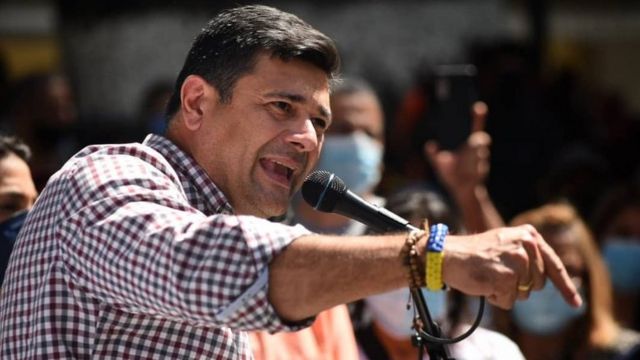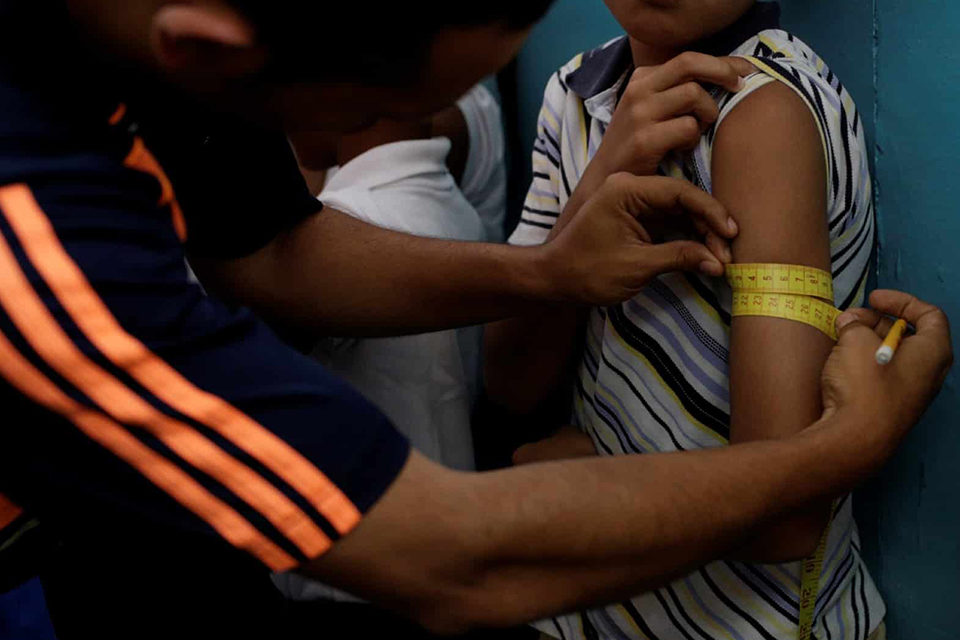Within the framework of the Plan País (Plan for the Country), coordinated by the National Assembly, Acceso a la justicia traced a path to achieve the re-institutionalization of the Judicial Power in Venezuela during the democratic transition.
The proposal for the reform of the Judicial Power that will be delivered next Friday, May 24 to the interim president of the Republic, Juan Guaidó, at the headquarters of the Universidad Católica Andrés Bello-UCAB (Andrés Bello Catholic University) had the collaboration of el Centro de Derechos Humanos de la Universidad Metropolitana (the Human Rights Center of the Metropolitan University.)
“Venezuela is not characterized by the robustness of its rule of law. The Judicial Power is just an appendix and “protector” of the decisions of the national Executive,” said Ali Daniels, director of Acceso a la justicia, as a preamble to the presentation of the proposal of that organization in the UCAB.
The Plan seeks to re-institutionalize the Judicial Branch from four specific scopes: independence, transparency, Acceso a la justicia and judicial management.
Independence
Daniels was emphatic in pointing out that we have to build new agreements, since none has served to guarantee the independence of the powers.
In this sense, for the independence to be real, Acceso a la justicia proposes to approach the Judicial Power from two levels: el Tribunal Supremo de Justicia-TSJ (he Supreme Tribunal of Justice) and the rest of the Judicial Power.
As observatorio venezolano de la justicia (Venezuelan Observatory of Justice), the NGO considers that the independence of the Judicial Power passes, fundamentally, through the actions and conduct of judges and magistrates, which is the reason why it has focused its efforts on the revision of its credentials and actions.
In relation to the TSJ, the proposal contemplates that the magistrates appointed by la Asamblea Nacional (National Assembly) in July 2017 who are currently in exile are considered head judges (since there is a legal basis for it), and that the credentials of the pro-government magistrates who are currently on exercise of their charges be reviewed, to see if they meet or not the requirements required by law, so as to cover the remaining 19 to reach the total of 32. Once this is done, if necessary, the elected deputy judges from 2017 will be called to fill the vacancies that remain after the process mentioned above.
As for the rest of the Judicial Power, Acceso a la justicia proposes to avoid the “witch hunt”, as it was done in 1999, in the middle of the constituent process. In this sense, the idea is to create a Mixed Commission (with international support) that allows to review the situation of judges throughout the country, always with respect to due process and without paralyzing the justice service.
Additionally, the Venezuelan NGO recommends the reform of the Ley del Sistema de Justicia (Law of the Justice System), in which there is an abusive interference of both the Executive Power and the so-called “Communal Power” in the administration of justice.
Transparency
The opacity in matters of justice is not only a problem of limitation of the possibilities of being informed, but also, it facilitates the commission of corruption, therefore, among the short-term measures to give more transparency to the Judiciary, Acceso a la justicia considers important to order the judges to comply with the publication of judgements and the basic statistics of their management.
Given that the opacity in the Judiciary reaches such a point that basic information about it is not known, Acceso a la justicia proposes the creation of a commission that allows to learn all the information of the judges in the country, how many there are and how many are deputies or head judges, update the file of the judges, the personnel under their charge and the endowment of technological resources, among other aspects that the TSJ has not wanted to make public in its disinformation policy on the courts.
In a more historical and pedagogical sense, the creation of a “truth commission” that identifies the patterns of repression and control of the judges used by the regime is recommended, to know how the so-called “jurists of horror” have operated in the mediatization of justice to let crimes against humanity go unpunished.
Access to Justice
“Who said that a lawyer cannot take a picture of a file, if that is a public document?” Daniels asked, introducing the need for the access to justice to be guaranteed in the democratic transition.
The NGO proposes that any lawyer or ordinary citizen can photograph a file, a practice that is common in other countries and that should only be limited by respect to the victims in very specific cases.
In the proposal of Acceso a la justicia, orality and judges of peace are back and the justice applied by the criminal law of the enemy is on the way out, for that reason it is contemplated to restore the justice of peace and assign it to the jurisdiction of the municipality.
Judicial Management
For all of this to work, it is necessary to oil the gear through an efficient judicial management. In this case, it is important that an immediate policy of unemployment of the judicial cells is implemented in the short term, that the amount of the courts be updated according to the economic reality of the country and that the use of all the tools offered by the Juris 2000 be reactivated, among others.
And to you Venezuelan, how does it affect you?
A country where citizens see the courts as an interference or, worse, as a mean to legitimize abuses, and not to solve their problems, is a country without a future, so with the cease of usurpation it becomes necessary and urgent, to give viability to a real plan for the country, that the judiciary finally becomes what it has never been: the defender of the rights of all in front of the power.
An independent and impartial judge is not afraid to confront power and tell it that it cannot act in violation of liberties. Hopefully one day we will witness this. Therefore, we cannot remain mere wishes and propose concrete proposals to make them effective, as long as we do not understand that we must build a Judicial Power with solid foundations, we will not have a future and we will be subject to the whims of power.
To read the paper by Ali Daniels, click here.
Access to Justice, is a non-profit, private and independent civil association, founded in 2010 by Venezuelans committed to the defense of justice, the rule of law, the separation of powers, judicial independence, democracy, freedom and human rights in Venezuela.
As the Venezuelan Observatory of Justice, we are dedicated to monitor the administration of justice and the rule of law in Venezuela, as well as disseminate the corresponding information to ensure that citizens achieve their rights. We want to promote a legal, civic, democratic, institutional, guarantee and human rights culture among citizens. Access to justice was founded in 2010 by Laura Louza Scognamiglio, who is its general director. He also serves as its director, Ali Daniels Pinto, who is a member of the NGO since 2015.




